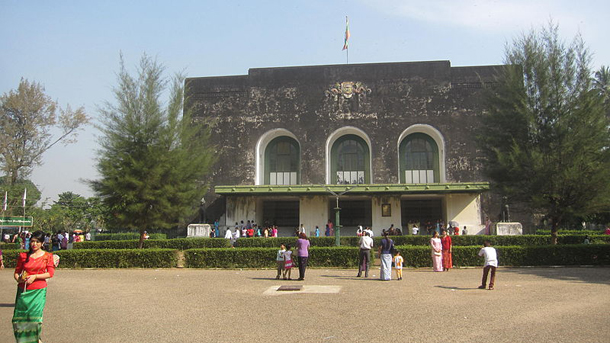The open letter of U Myint, Naypyidaw’s leading economic adviser, which calls for the restoration of Rangoon University, was based on his personal views and does not reflect the President’s Office, according to President’s Thein Sein’s chief political adviser Ko Ko Hlaing.
In a press conference held in Rangoon on Thursday, Ko Ko Hlaing said U Myint’s proposal regarding “the restoration of the image of Rangoon University” was not distributed with prior knowledge nor reflected any view of the President’s Office.
However, he added that he believes the letter was written with good intentions towards the university.
Ko Ko Hlaing said that the state specially desired revitalizing the image of Rangoon University but also wanted all learning institutions across the country to be able to compete with their peers across the world. The state cannot turn a blind eye to other schools while paying close attention to the former, he stressed.
The political adviser revealed that an information technology university from India has agreed to open a Burmese branch to help develop the nation’s higher education capacity, while next year South Korea will be offering assistance to build the Myanmar Development Institute, which will be similar to the Korea Development Institute.
“It can’t be done right away as it takes time to develop an education system,” he said. “Rangoon University, Rangoon Institute of Economics and Rangoon University of Computer Studies will be built up as centers of excellence.”
Ko Ko Hlaing also explained that tennis courts belonging to Rangoon University were not transferred to private businessmen. Instead, they have been upgraded for the 2013 Southeast Asian Games which Burma will host, he said.
When asked about the Thursday press conference, U Myint admitted to The Irrawaddy that his letter was not related to the President’s Office but simply reflected his views in a personal capacity.
The most important issue in Burma is national reconciliation and, as a former lecturer of economics, he wrote the letter with the good-willed intention to improve relations between the government and students, he said.
“I just wrote about the Students Union by reflecting upon my university days, that’s all,” he said. “It wouldn’t harm the country though.”
Some journalists who attended the May 24 press briefing told The Irrawaddy that they thought a rift may be forming between U Myint and other advisers over the issue.
“U Myint’s letter was constructive—not to leave the Rangoon University empty but make it crowded with students as before, make it one of the most prestigious seats of learning in Asia as before and allow forming student unions,” said an editor of a domestic news journal who asked to remain anonymous.
“The president and his other advisers did not seem to accept his proposal and that’s why the press conference was organized. U Myint may resign from his current position or be dismissed.”
Led by Ko Ko Hlaing, the press conference was reportedly held under a direct order from the President’s Office. Other prominent advisers to Thein Sein were also present such as Dr. Nay Zin Latt, Sit Aye and Khin Cho Myint.
The Rangoon University campus, an original hub of the students’ political movement since British colonial rule, has been at the center of major events throughout Burmese history. But regular classes have not been held there since the 1990s after the former military junta systematically moved universities to suburban areas in order to quell dissenter activities.
U Myint also suggested restoring the Students Union building, reinstating classes in the center of the former capital as well as bringing back hostels and all related infrastructure. The Students Union building was demolished by dictator Ne Win after mass protests against his coup in 1962.

















